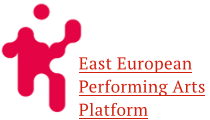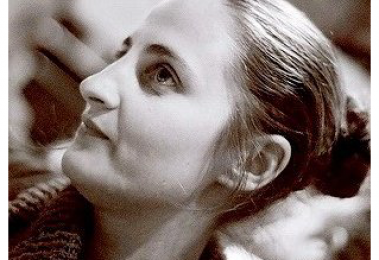East European Performing Arts Platform (EEPAP) supports the
development of contemporary performing arts (dance and theatre)
in 18 countries of Central and Eastern Europe.
The Bulgarian winter: between the devil and the deep blue sea
On Wednesday, 20th of February 2013, the Bulgarian government headed by Boyko Borissov has deposited its resignation. What happened? What comes next?
source: http://www.criticatac.ro/21415/bulgarian-winter-between-devil-deep-blue-sea/
Over the last week, Bulgarians in most big cities have been out in the streets, protesting against the increased electricity and heating bills. While the increase has happened gradually throughout 2012, the bills that were delivered to the post-boxes of the population in January 2013 were often times bigger than they would normally get. The wave of contention in response to the rise of electricity prices spread throughout the country, resulting in blockades of roads, barricades, increasing popular rage and police violence. An old man cut his veins in a village in North Bulgaria in a feat of desperation over his bill. One of the organizers of the protests in Varna was stabbed with a knife. The boss of the police force in traditionally rebellious city of Pernik was beaten up by angry protesters. In Sofia over ten people were arrested, and further twenty five beaten by the police. A team of journalists were shot upon with private weapon from a building in the center of Sofia. Police cars and barrels of rubbish were turned upside down after the protests on Sunday and Monday night. Bills, flags, and cars were burnt, and windows broken before offices of the few power distributing companies and their local representatives. The protesters were mostly rank-and-file Bulgarians fed up with the political system of the last 23 years that has lead to their full impoverishment and total alienation from the political process. Middle-aged men and women, young couples with children and students all went out on the streets to protest the deadlock which successive governments had installed on them. The protests were also joined and partly hijacked by a number of right-extreme groups. Mobilized around the neo-Nazi march this Saturday, commemorating interwar General Hristo Lukov, the Hitlerite leader of the Bulgarian Legions, who and introduced anti-Semitic laws, they were ready to provoke and loot. Their reactions jeopardized the energy of the protests which peaked on Sunday, and resurged on Tuesday. Tuesday night saw bloody clashes with the police in Sofia on the even of the commemoration of Vassil Levski, the only uncontested hero and political martyr of the Bulgarian national liberation. When Boyko Borissov said he would resign on Wensday morning, it was this blood on his hands, he said he could not tolerate. Yet, most people see his resignation as a way to desert the sinking ship of the Bulgarian state amidst the crisis previous cabinets started and he deepened.
The last protests did not come out of the blue. Over the last two months numerous protests have taken place throughout the country. In November the threat to the poet and all-time-dissident Nikolay “Bossiya” (Barefoot) Kolev sparked the so-called “Tomato revolution”: a night of discontent not just against the unjust court trial of Bossiya, but against the government in general. In December and January two protests against privatization moves took place. The privatization of the freight train transport – the profiting part of the railway company split “under EU regulations” – has also been underway despite the protests in Sofia. A much wider social and media response was generated around the months’ long blockade of the Sopot Machine plant. The demand of the workers to get their six months’ salaries back led to its rapid privatization and the materialization of a mysterious sum of money with which the government paid back the salaries of the state-employed workers. In December and January the Green movement that protested in the summer was back to the streets. While in June their victory against the Forestry act was seen as a success, less than half a year later the government was overseeing the continuing construction. The contradictory Law of Education also sparked moderate protests. While the competition between teachers and the state subsidy to private schools have been the most contradictory clauses, middle-class parents mobilized against the compulsory post-4 kindergarten provision. Since December students at the Sofia University have also come out to protest against the increase of student fees. All these protests have come as a symptom of the increasing discontent of Bulgarians with the political and economic system. And while not all demands went against privatization and for protection, this was the overall frame: a frame that has proved difficult to articulate after decades of a systematic liberal pro-market brain-wash (...)
SEE MORE: "The Bulgarian winter: between the devil and the deep blue sea"
SOURCE: http://www.criticatac.ro/21415/bulgarian-winter-between-devil-deep-blue-sea/


